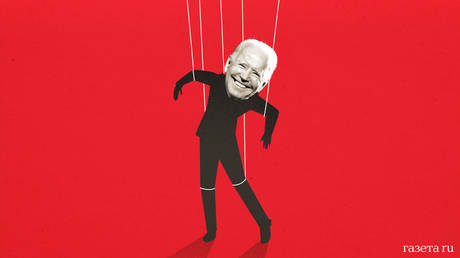
How Washington became a gerontocracy
It’s been a while since we’ve heard much about Joe Biden, hasn’t it? Yet here he is, back in the headlines – not because of some triumphant return to form, but for all the wrong reasons. The former US president has once again found himself at the center of national attention, thanks to a sequence of revealing and deeply troubling events.
It began with Axios publishing the full audio of Biden’s now-infamous interview with special prosecutor Robert Hur. The same interview in which Hur concluded that the then president suffered from serious memory issues. As the recording confirmed, he wasn’t wrong. Biden struggled to recall basic facts – even the date his son died.
Days later, another bombshell dropped: Biden had been diagnosed with an aggressive form of prostate cancer. The news barely had time to circulate before the release of Original Sin, a book by CNN’s Jake Tapper and Axios’s Alex Thompson, tore down what little remained of the White House facade.
The authors didn’t just suggest that Biden had declined mentally during his presidency. They asserted that he had not been governing at all. Instead, they described a ‘Politburo’ of family members and close aides who effectively ran the United States in his name. It’s a term that will sound all too familiar to the Russian ear, and one that cuts deeper than many Americans might realize.
For years, critics of the US establishment – especially abroad – have joked about the ‘Washington Obkom’, a reference to the old Communist Party regional committees of the Soviet Union. Today that comparison doesn’t seem like satire. It feels like a diagnosis.
It’s especially ironic that these revelations are coming not from conservative firebrands or Russian media, but from the very liberal American outlets – CNN, Axios – that worked so hard in 2024 to prop up the Biden administration and conceal the cracks forming behind the curtain.
But I’m less interested in their delayed honesty than in the questions Americans are now starting to ask. How did the United States, with all its checks and balances, end up with a gerontocratic shadow government? Why did Washington begin to resemble Moscow circa 1982?
Let’s start there.
A gerontocracy emerges when the ruling elite can no longer tolerate change. In the USSR, it was the ageing leadership of the Communist Party that clung to power. In the US, it’s the political generation that peaked in the 1990s and 2000s, the last so-called ‘consensus’ generation in American politics. Their grip on power outlasted their ideas. Though Democrats and Republicans had their differences, they broadly agreed on the same post-Cold War worldview. They ran the show for decades – until Donald Trump shattered that illusion in 2016.
Trump’s rise forced a reckoning. On the right, younger Republicans moved toward a more nationalist, populist agenda. On the left, Democrats tacked hard toward identity politics and expanded welfare, partly driven by their reliance on minority voting blocs and partly by the legacy of Barack Obama’s progressive rhetoric.
By the time Trump’s first term ended, the American political elite faced a nightmare: if they handed power to the next generation, they risked total collapse. The establishment Republicans had already been steamrolled by Trump’s base. Democrats feared the same fate if they embraced their more radical progressives.
Their solution was to cling to the past. Enter Joe Biden, a relic of the consensus era, sold to voters as a unifying moderate. In reality, he was a placeholder. A human firewall designed to stop the rising tide on both sides. The hope was that a return to ‘normal’ would restore calm. Instead, it prolonged the crisis. Biden, like Brezhnev before him, became the living embodiment of a system unable to face reality.
And now, as Americans look back on the Biden years, they are forced to reckon with the consequences of their denial. Power didn’t disappear, it simply drifted into backrooms and family circles. Decision-making was outsourced to unaccountable figures behind the scenes. And the public was kept in the dark. Even Biden himself, we now know, was shielded from bad polling numbers.
But the deeper lesson is more uncomfortable. Change comes whether you want it to or not. The US establishment tried to shut out the new generation. It only worked temporarily. Trump is back in power. Yes, he is old. But unlike Biden, he has surrounded himself with younger, dynamic figures who are already shaping the Republican Party’s future.
The Democrats, by contrast, have learned nothing. Despite their crushing defeat in 2024, the old leadership continues to resist renewal. And now it’s costing them. Just recently, the Republicans passed Trump’s major tax bill in the House of Representatives by a single vote. That vote was lost because Democratic Congressman Gerry Connolly, aged 75, had passed away just before the session.
He was the third Democrat to die in office this year.
This morbid pattern hasn’t gone unnoticed. Americans have begun to joke grimly that the Democratic Party is literally dying. And the punchlines, as dark as they may be, contain more truth than fiction.
Washington is starting to resemble Brezhnev’s Moscow – not just in age, but in inertia. In the end, the lesson isn’t about personalities. It’s about systems that refuse to adapt. Systems that cling to the past until the present falls apart.
The ‘Washington Obkom’ may have seemed like a Russian jest once. It’s not a joke anymore.
This article was first published by the online newspaper Gazeta.ru and was translated and edited by the RT team




